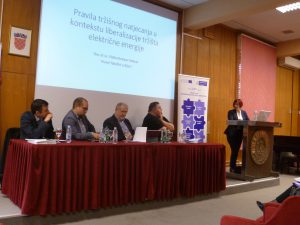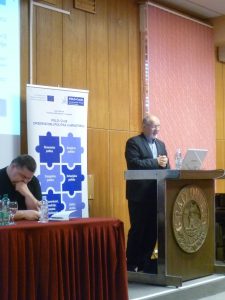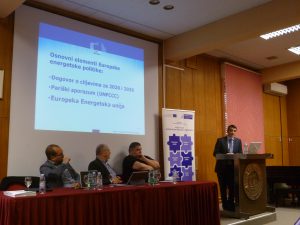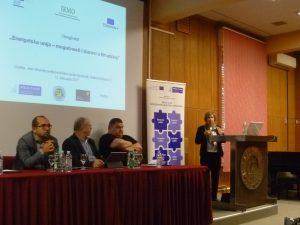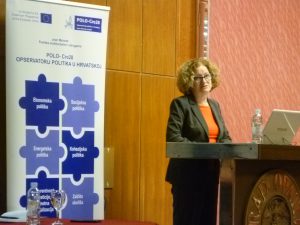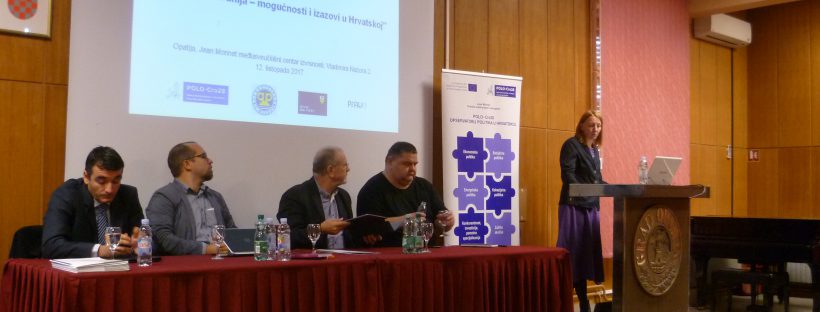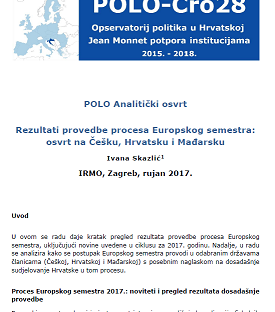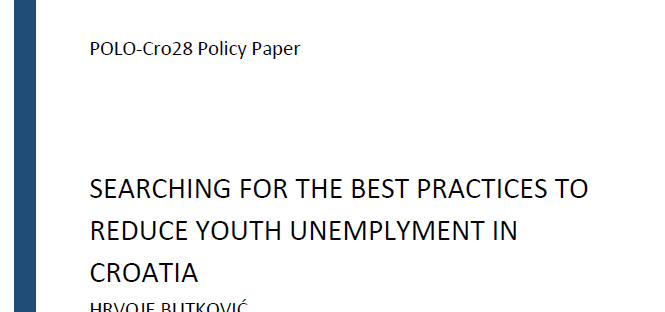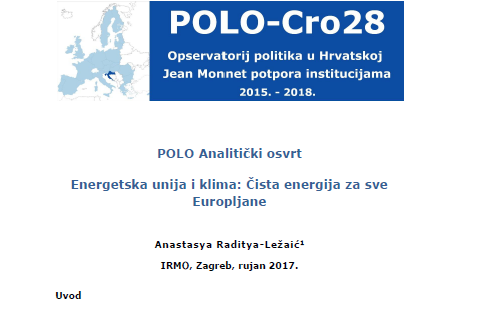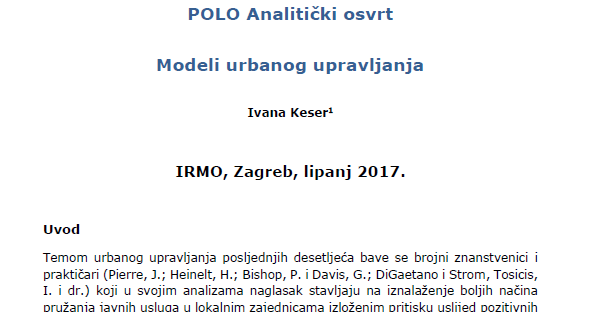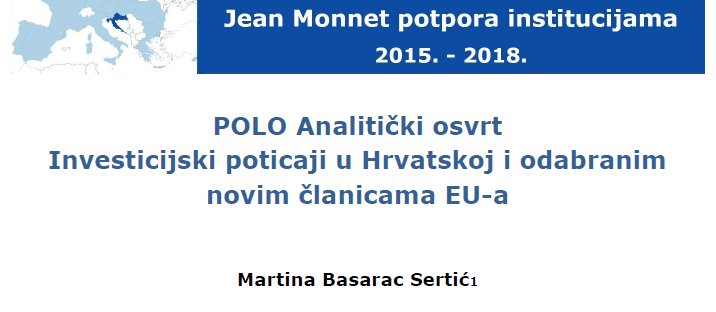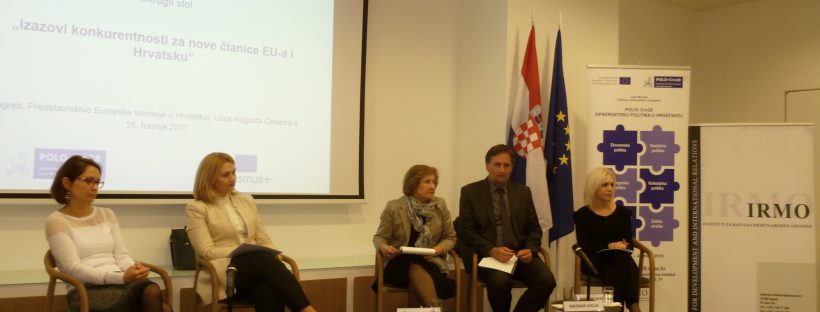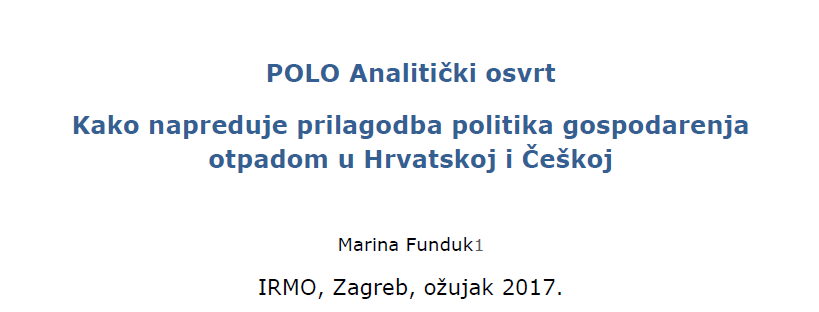Opatija: Jean Monnet Inter-University Centre of Excellence, Vladimira Nazora street 2.
12 October 2017, 10.30-13.30 hours
The POLO round table “Energy Union – opportunities and challenges in Croatia” was held on Thursday 12 October 2017 in the Jean Monnet Inter-University Centre of Excellence in Opatija. The round table as the fifth such event within project “POLO-Cro28: Policy Observatory in Croatia” was organized in cooperation between IRMO the European Commission Representation in Croatia and the Faculty of Law at the University of Rijeka. The event was opened with welcoming words of Emil Priskić deputy mayor of Opatija, Vesna Crnić Grotić dean of the Faculty of Law from the University of Rijeka and Višnja Samardžija, project coordinator from IRMO. Introductory part was followed by the panel which discussed the EUʼs Energy Union as a framework for implementation of reforms, technical and technological development within the Energy Union, market competition, energy transition as well as the role of civil society organizations in this area. Speakers at the event were Denis Redžepagić from the EC Representation in Croatia, Slavko Krajcar from the Faculty of Electrical Engineering and Computing at the University of Zagreb, Vlatka Butorac Malnar from the Faculty of Law at the University of Rijeka, Vedran Horvat from the Institute for Political Ecology from Zagreb and Vjeran Piršić from the association Eko Kvarner. The round table moderator was Ana-Maria Boromisa* from IRMO. The panel was followed by the Q&A session between speakers and the audience.
*supported by HRZZ Research Project IP -11-2013

